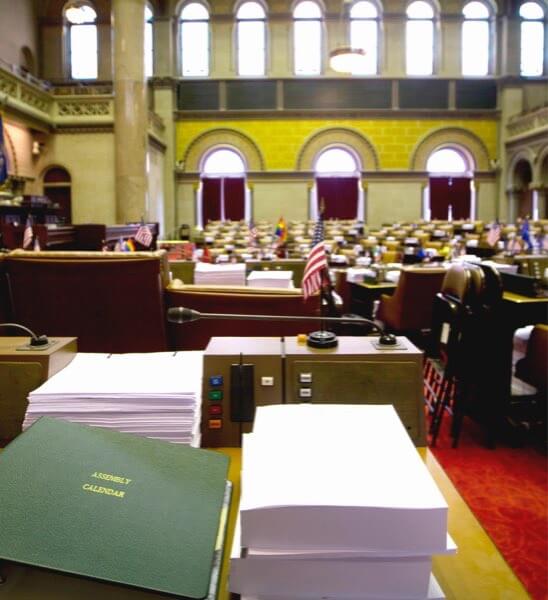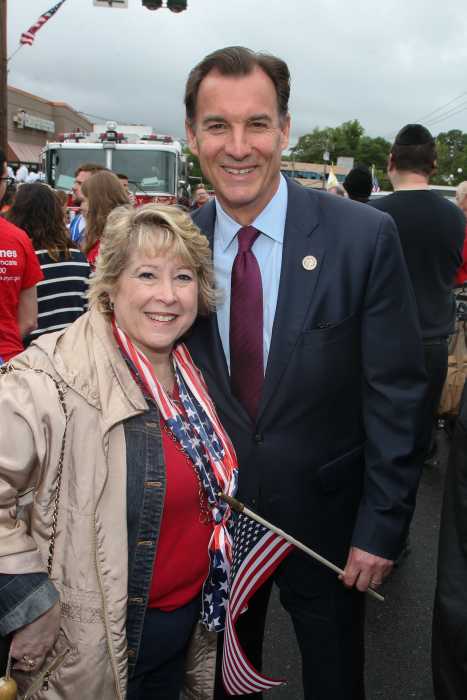By Patrick Donachie
Though progress had been made on several key issues, state legislators and Gov. Andrew Cuomo had not yet reached a conclusion on legislation for the coming year’s budget by Wednesday night, the governor said.
But at a news conference in Albany he said the budget extender passed Monday ensured the government would continue to run even without a final agreement.
“In terms of the functioning of government, it’s all functioning,” he said. “There are open items, but they are not items affecting the progress of the state.”
Cuomo said the major remaining issues concerned agreeing on how to raise the age when teenagers should be tried as adults, 421-a reform to spur affordable housing and charter school funding, with an automatic increase of $1,500 per student to charter schools coming in June if the Legislature does not take action. Cuomo said he also wanted to ensure the government could continue to function in the face of what he believed were almost certain cuts from Washington.
“I am taking a cautious note because I feel like we will have to adjust,” Cuomo said.
The budget extender will last until May 31, and the governor said it’s possible the negotiations could continue in light of the possibility of significant federal cuts. He expressed frustration with the annual budget model, saying he could see the benefits of a “continuing resolution” model that he argued would allow the state to more nimbly react to the federal government’s approach.
“I want a budget that gives me the cautious financing, so if the waves come, we can proceed with the ship at sea,” he said.
State Sen. Toby Stavisky (D-Flushing) said agreement had been made on raising the age on criminal charges in the Senate as of Tuesday night, and she accused Senate Republicans and the Independent Democratic Conference of conducting a dysfunctional majority. “It’s very frustrating because agreements are made by the majority coalition that consists of the Senate Republicans and the rogue Democrats and with the Assembly and governor,” she said. “And they’re broken.”
The state Senate passed a number of bills Tuesday evening, but Stavisky cautioned that most of the controversial disagreements between legislators — including the debate to raise the age of criminal prosecution, the possibility of 421-a reform and education funding allocations to the state’s 700 school districts — had yet to be passed.
The state Assembly gaveled into session at about 1:30 p.m. Wednesday to pass several budget-related bills. A spokeswoman for Assemblyman Clyde Vanel (D-QueensVillage) said the Assembly would likely still be legislating until Thursday morning, and expressed hope that there would be broad agreement on legislation to raise the age of automatic adult criminal prosecutions from 16 to 18 years old. New York is one of only two states in the country that prosecutes everyone as an adult when they turn 16 years old.
Stavisky said the understanding in the state Senate as of Tuesday evening had been that raising the age would be included in a later revenue bill, which is often referred to as “the big ugly,” as it often contains controversial and difficult aspects of budget legislation. She said Sen. John DeFrancisco (R-Syracuse) had assured Sen. Michael Gianaris (D-Astoria), the party’s floor leader, that there was agreement on the proposal.
“The problem is that the language that was agreed upon at 1 a.m., when people woke up the next morning, the agreement had disintegrated,” she said.
She also said funding for the DREAM Act, which offers financial aid for undocumented students to pursue an education, was off the table in negotiations.
“They want the same opportunities as somebody born here,” she said about the DREAM Act. “And it was never addressed by the majority coalition.”
Reach reporter Patrick Donachie by e-mail at pdona



































